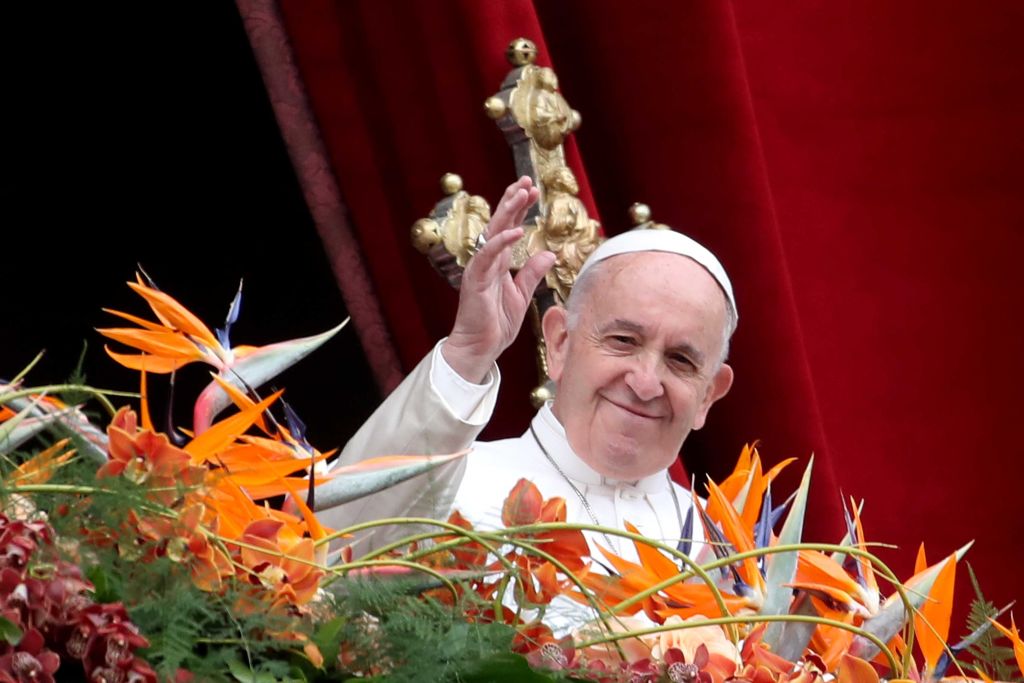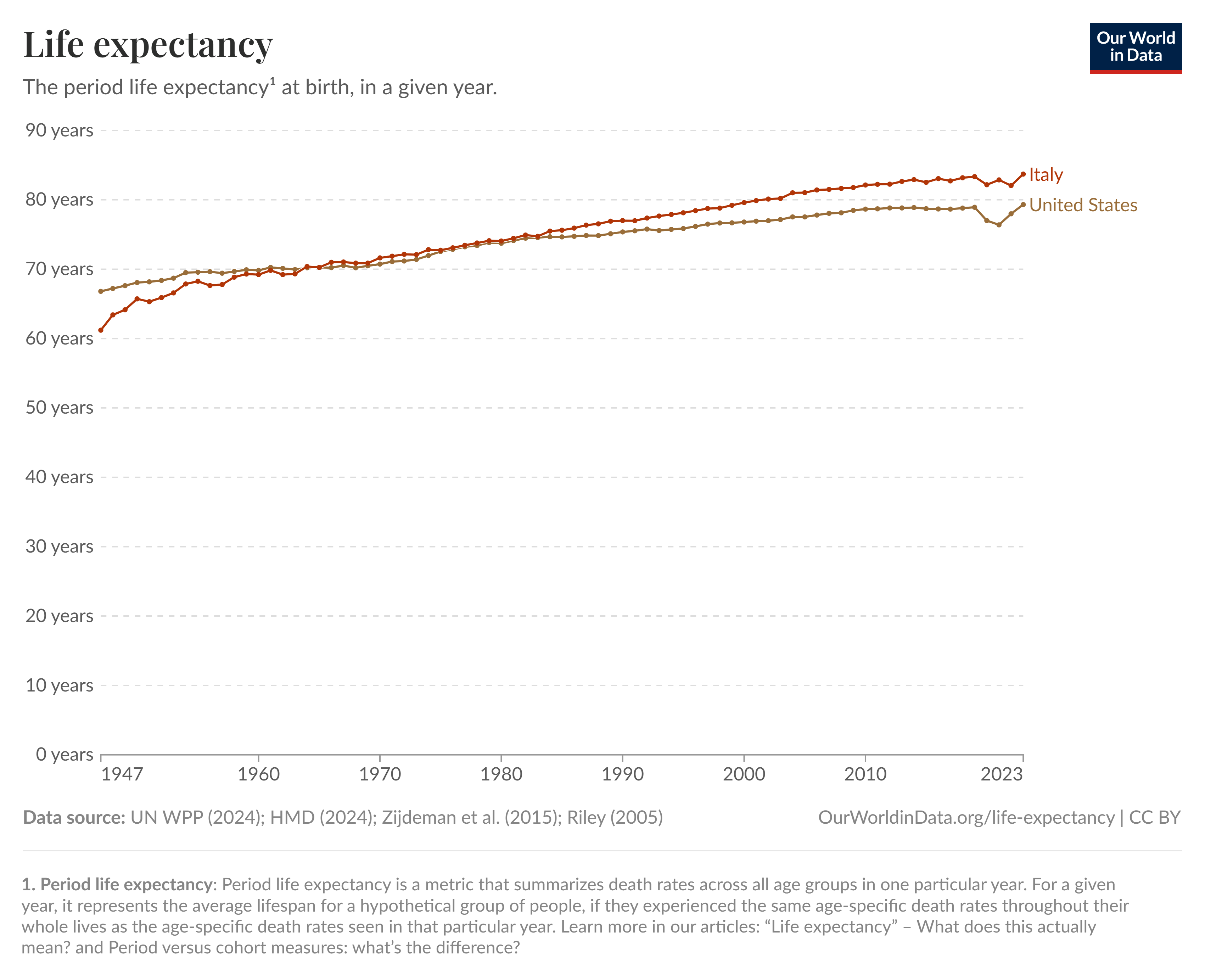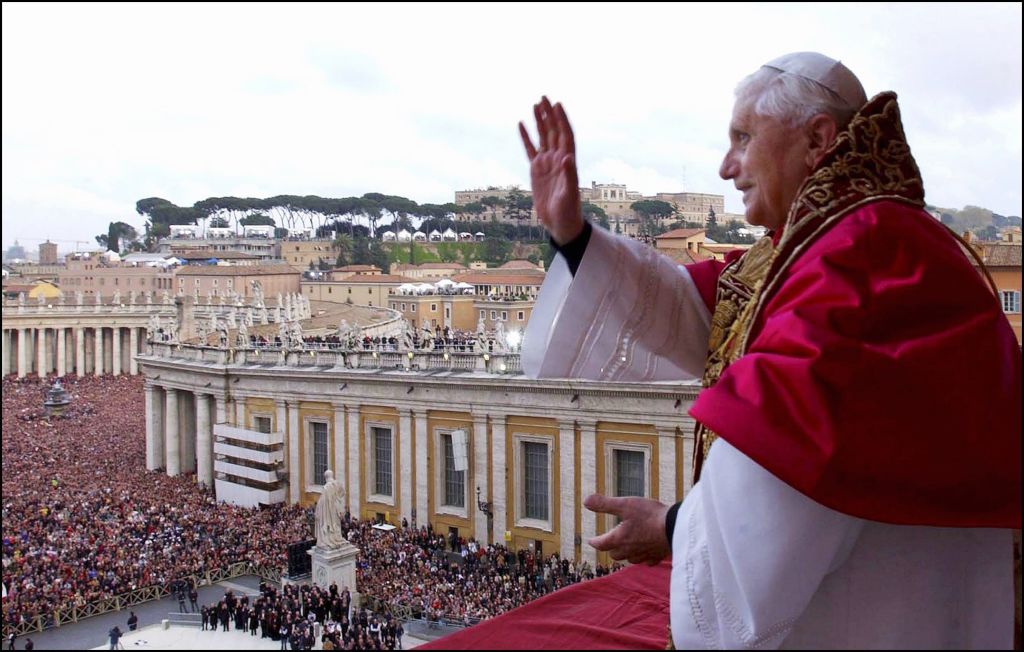Popes Live Longer: Four Ways You Can Too
With all eyes on the conclave, it's hard to miss that popes live longer and are able to work into their 80s. Here are four of their strategies you can try.

Ellen B. Kennedy

Profit and prosper with the best of Kiplinger's advice on investing, taxes, retirement, personal finance and much more. Delivered daily. Enter your email in the box and click Sign Me Up.
You are now subscribed
Your newsletter sign-up was successful
Want to add more newsletters?

Delivered daily
Kiplinger Today
Profit and prosper with the best of Kiplinger's advice on investing, taxes, retirement, personal finance and much more delivered daily. Smart money moves start here.

Sent five days a week
Kiplinger A Step Ahead
Get practical help to make better financial decisions in your everyday life, from spending to savings on top deals.

Delivered daily
Kiplinger Closing Bell
Get today's biggest financial and investing headlines delivered to your inbox every day the U.S. stock market is open.

Sent twice a week
Kiplinger Adviser Intel
Financial pros across the country share best practices and fresh tactics to preserve and grow your wealth.

Delivered weekly
Kiplinger Tax Tips
Trim your federal and state tax bills with practical tax-planning and tax-cutting strategies.

Sent twice a week
Kiplinger Retirement Tips
Your twice-a-week guide to planning and enjoying a financially secure and richly rewarding retirement

Sent bimonthly.
Kiplinger Adviser Angle
Insights for advisers, wealth managers and other financial professionals.

Sent twice a week
Kiplinger Investing Weekly
Your twice-a-week roundup of promising stocks, funds, companies and industries you should consider, ones you should avoid, and why.

Sent weekly for six weeks
Kiplinger Invest for Retirement
Your step-by-step six-part series on how to invest for retirement, from devising a successful strategy to exactly which investments to choose.
Starting May 7, 133 Catholic cardinal electors will gather to choose a new pope in a closed-door, age-old conclave ritual. Supporters are pouring into Rome and the Vatican for the event, and speculation on who could be the next pope is fierce.
For centuries, popes have been hand-picked from the Catholic Church's most senior officials. The entire process is conducted in secrecy, and only once a cloud of white smoke arises from the Sistine Chapel is the public alerted that a new pope has been chosen.
Interestingly, the average age of popes is increasing. Though this trend mirrors the demographic shift of an aging Europe, there's more to it, as popes are often able to work until death, as Pope Francis did. What's behind papal longevity? There are lessons for all of us, of any religion or stripe, on how to have a long and happy older age.
From just $107.88 $24.99 for Kiplinger Personal Finance
Become a smarter, better informed investor. Subscribe from just $107.88 $24.99, plus get up to 4 Special Issues

Sign up for Kiplinger’s Free Newsletters
Profit and prosper with the best of expert advice on investing, taxes, retirement, personal finance and more - straight to your e-mail.
Profit and prosper with the best of expert advice - straight to your e-mail.
Popes live longer and start their papacy later
Popes are remarkable agers, meaning they live long and work late in life. More than 30 popes have served the Catholic Church since 1600. Nine, including Pope Francis, were 70 years of age or older when elected, and more than half worked into their 80s.
The average age of popes has also increased over time. In the 1900s, it was 79. In the 2000s, it increased to 86.3.
The three oldest popes to emerge from the Sistine Chapel after voting were all modern popes. They include: Benedict XVI (age 78, who began his pontificate in 2005), Francis (age 76, elected in 2013), and John XXIII (age 76, elected in 1953).
Why do popes live so long — and can you age like a pope?
During the mid-19th century, the average European only lived until their early 40s. Yet during that same time, the average pope lived to 77. So, how did they do it?

1. Better food, medicine and ... being Italian
The International Journal of Epidemiology says Vatican members were likely better fed, clothed, and sheltered over the years than most of their peers. They also had better access to medical care.
There's also the fact that about 80% of all popes have been Italian, where life expectancies have been rising with better medical care and a healthier economy. As the chart above shows, an Italian born since about 1980 will likely outlive his or her American peer. Italian longevity may boil down to a better diet, a cleaner environment and lifestyle. If you want to go all-in on a Mediterranean diet and "la dolce vita," you could always retire in Italy.
2. Living in a structured community and avoiding loneliness.
Popes also, by nature, have the support of their religious community to fall back on as they age. Living a structured life in community, as members of religious orders tend to do, can benefit physical and mental health. A study of Catholic nuns also found similar increased longevity and good cognitive health into old age. Members of religious orders are also less likely to be lonely, which can cause significant health deficits.
You don't have to become a monk or nun to get the companionship and health benefits of a community. If you're of retirement age and considering downsizing, you could also look into retirement communities. They've come a long way from depressing examples of yore. You can consider communities built around the "Margaritaville" lifestyle, linked to a university for lifelong learning, a faith-based retirement community, or other niche communities.

Pope Benedict XIII, who retired at age 85.
3. Popes don't retire (usually)
A 2024 MassMutual report found that the average U.S. retirement age is 62. Popes, on the other hand, almost always stay in that role until they die.
Interestingly, Pope Benedict XVI bucked that trend. When he was elected Pope in 2005, he was already 78 years old, and he resigned in 2013 at 85. He eventually passed away 10 years later while living in the Vatican. Declining health was a factor in his decision to step down.
But popes don’t retire the way the rest of us do, and that may be a contributing factor to their longevity. Studies have shown that retirement is associated with an increased risk of cognitive decline. And there are strong links between the onset of retirement and an increased risk of depression.
While most people would not choose to work until death, various strategies can help you avoid the physical and mental shock of retirement. By taking a sabbatical, you may be able to work until a later age, avoiding burnout. Taking a phased retirement is another way to smooth the transition. This approach could involve fewer hours at your job, job sharing, consulting or transitioning to a less demanding role.
4. Having a purpose
It's a big job keeping the Catholic Church together. During his papacy, Pope Francis traveled to 60 countries and dealt with difficult issues. While stressful, his actions and decisions were undoubtedly important, deeply spiritual, and meaningful.
While we all want leisure in retirement, those of us who are not popes may overdo it. That's why it's key to plan for purpose and leisure as we age.
Read More
Profit and prosper with the best of Kiplinger's advice on investing, taxes, retirement, personal finance and much more. Delivered daily. Enter your email in the box and click Sign Me Up.

Maurie Backman is a freelance contributor to Kiplinger. She has over a decade of experience writing about financial topics, including retirement, investing, Social Security, and real estate. She has written for USA Today, U.S. News & World Report, and Bankrate. She studied creative writing and finance at Binghamton University and merged the two disciplines to help empower consumers to make smart financial planning decisions.
- Ellen B. KennedyRetirement Editor, Kiplinger.com
-
 Quiz: Do You Know How to Avoid the "Medigap Trap?"
Quiz: Do You Know How to Avoid the "Medigap Trap?"Quiz Test your basic knowledge of the "Medigap Trap" in our quick quiz.
-
 5 Top Tax-Efficient Mutual Funds for Smarter Investing
5 Top Tax-Efficient Mutual Funds for Smarter InvestingMutual funds are many things, but "tax-friendly" usually isn't one of them. These are the exceptions.
-
 AI Sparks Existential Crisis for Software Stocks
AI Sparks Existential Crisis for Software StocksThe Kiplinger Letter Fears that SaaS subscription software could be rendered obsolete by artificial intelligence make investors jittery.
-
 Quiz: Do You Know How to Avoid the 'Medigap Trap?'
Quiz: Do You Know How to Avoid the 'Medigap Trap?'Quiz Test your basic knowledge of the "Medigap Trap" in our quick quiz.
-
 We Retired at 62 With $6.1 Million. My Wife Wants to Make Large Donations, but I Want to Travel and Buy a Lake House.
We Retired at 62 With $6.1 Million. My Wife Wants to Make Large Donations, but I Want to Travel and Buy a Lake House.We are 62 and finally retired after decades of hard work. I see the lakehouse as an investment in our happiness.
-
 Social Security Break-Even Math Is Helpful, But Don't Let It Dictate When You'll File
Social Security Break-Even Math Is Helpful, But Don't Let It Dictate When You'll FileYour Social Security break-even age tells you how long you'd need to live for delaying to pay off, but shouldn't be the sole basis for deciding when to claim.
-
 I'm a Wealth Adviser Obsessed With Mahjong: Here Are 8 Ways It Can Teach Us How to Manage Our Money
I'm a Wealth Adviser Obsessed With Mahjong: Here Are 8 Ways It Can Teach Us How to Manage Our MoneyThis increasingly popular Chinese game can teach us not only how to help manage our money but also how important it is to connect with other people.
-
 Global Uncertainty Has Investors Running Scared: This Is How Advisers Can Reassure Them
Global Uncertainty Has Investors Running Scared: This Is How Advisers Can Reassure ThemHow can advisers reassure clients nervous about their plans in an increasingly complex and rapidly changing world? This conversational framework provides the key.
-
 5 Ronald Reagan Quotes Retirees Should Live By
5 Ronald Reagan Quotes Retirees Should Live ByThe Nation's 40th President's wit and wisdom can help retirees navigate their financial and personal journey with confidence.
-
 We're 78 and Want to Use Our 2026 RMD to Treat Our Kids and Grandkids to a Vacation. How Should We Approach This?
We're 78 and Want to Use Our 2026 RMD to Treat Our Kids and Grandkids to a Vacation. How Should We Approach This?An extended family vacation can be a fun and bonding experience if planned well. Here are tips from travel experts.
-
 The 8 Stages of Retirement: An Expert Guide to Confidence, Flexibility and Fulfillment, From a Financial Planner
The 8 Stages of Retirement: An Expert Guide to Confidence, Flexibility and Fulfillment, From a Financial PlannerRetirement planning is less about hitting a "magic number" and more about an intentional journey — from understanding your relationship with money to preparing for your final legacy.